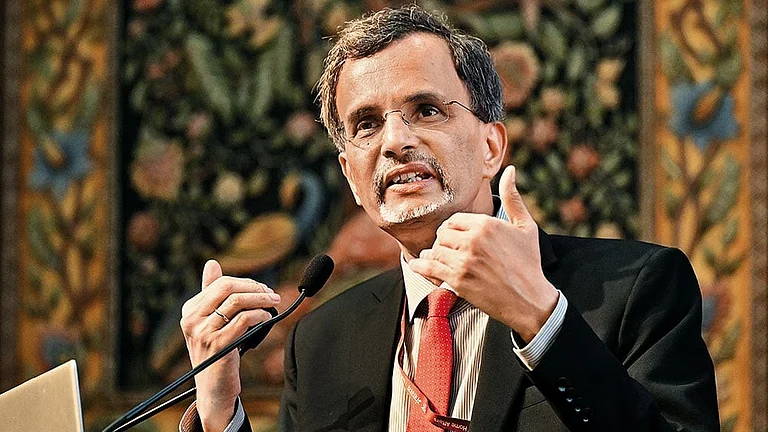The Economic Survey 2024-25 questioned India Inc's "disproportionate rise" in profits while wage growth for workers has moderated. Chief Economic Advisor (CEA) V Anantha Nageswaran noted in the pre-Budget document that "corporate profitability soared to a 15-year peak in FY24, while wages have lagged."
“Increasing income wages is not a moral ask but in self interest of the private sector, as it has a direct impact on aggregate demand, ” CEA Nageswaran said.
The Economic Survey 2024-25 noted that among Nifty 500 companies, the profit-to-GDP ratio surged from 2.1% in FY03 to 4.8% in FY24, the highest since FY08. Large corporations, especially in non-financial sectors, significantly outperformed their smaller peers in profitability.
The survey also highlighted a disparity in corporate India, where profits climbed 22.3% in FY24, but employment grew by only 1.5%.
“A State Bank of India (SBI) analysis revealed that 4,000 listed companies recorded a modest 6% revenue growth, while employee expenses rose only 13%, down from 17% in FY23,” said the pre-Budget document.
The CEA particularly noted wage stagnation at entry-level IT positions, a sector that has been in debt in recent years.
The sector, which contributes significantly to Indian formal jobs, has been criticised for offering salaries as low as Rs 3.5 LPA to fresh graduates. In their third-quarter earnings reports, top executives of Indian IT firms like TCS, Infosys, and others defended their policy.
AI and Workforce
The Economic Survey also noted that India's economy is predominantly service-oriented, with a large portion of its IT workforce engaged in low-value-added services. These roles are particularly vulnerable to automation, as companies may replace labor with technology to reduce costs.
The Economic Survey 2024-25 said, "To minimise the negative impacts of creative destruction, a collective societal effort is required, involving the creation of new social infrastructure to promote environments where innovation leads to inclusive growth." It further added that India will need to fast-track the creation of robust institutions through a tripartite compact between the government, private sector, and academia.
CEA Lauds Formal Job Creation
The Economic Survey noted the formalisation of the job market, citing payroll data from the Employees' Provident Fund Organisation (EPFO). It lauded government initiatives, stating they are "helping foster greater economic formalisation." Net additions to EPFO subscriptions more than doubled from 61 lakh in FY19 to 131 lakh in FY24. The momentum continues, with 95.6 lakh cumulative net additions recorded in the first eight months of FY25, marking a 3% year-over-year increase.
As of March 2024, EPFO membership stands at 32.7 crore, up from 29.9 crore in March 2023. Key sectors driving growth include expert services, which account for 50% of EPFO payroll additions, followed by trading and commercial establishments. Notably, the 18-25 age group contributed 47% of net payroll additions, indicating that the youth are primarily benefiting from new jobs in the organized sector.
However, the survey also noted that casual workers have declined from 24.9% to 19.8%, indicating a shift toward more structured forms of self-employment. The CEA also reported that the female Labour Force Participation Rate (FLFPR) has increased from 23.3% in 2017-18 to 41.7% in 2023-24.
"Schemes and initiatives like PM Employment Guarantee Programme, SANKALP, PM Micro Food Processing scheme, Adivasi Mahila Sashaktikaran Yojana, Swayam Shakti Sahakar Yojna, DAY-NRLM, etc., are promoting women-led enterprises by offering women entrepreneurs financial support, training, and mentorship, empowering them to start and scale their businesses," said the document.
































